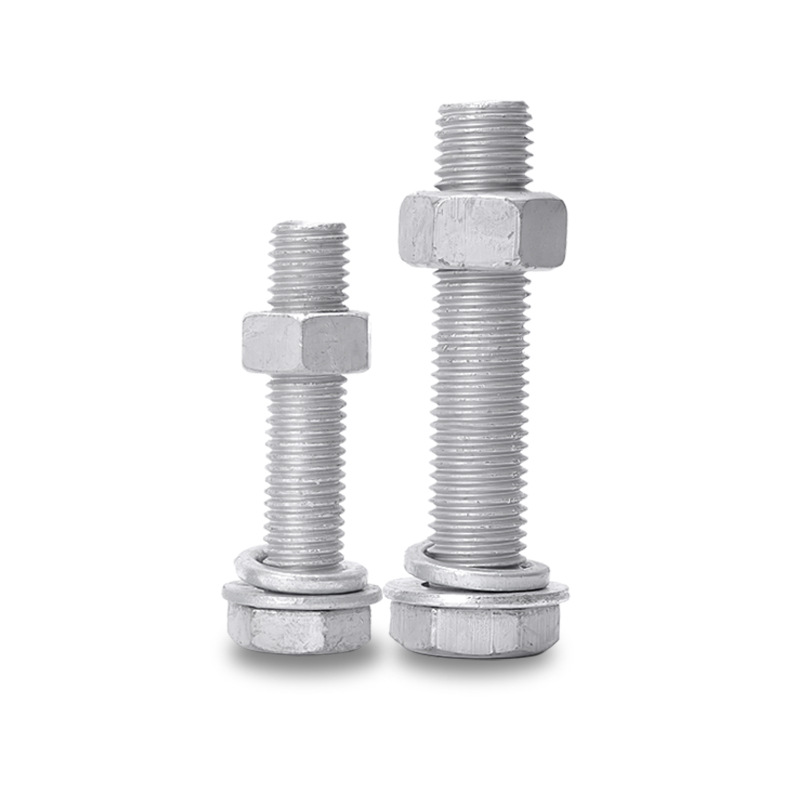

Small Self-Drilling Screws for Easy and Efficient Assembly Solutions in Various Projects
Déc . 03, 2024 22:53 Back to list
Small Self-Drilling Screws for Easy and Efficient Assembly Solutions in Various Projects
Exploring Small Self-Drilling Screws A Comprehensive Guide
In the realm of construction and woodworking, fasteners play a crucial role in ensuring the integrity and stability of various structures and projects. Among these fasteners, small self-drilling screws stand out due to their unique design and functionality. This article delves into the characteristics, applications, benefits, and considerations of using small self-drilling screws.
Understanding Small Self-Drilling Screws
Small self-drilling screws are specialized fasteners equipped with a drill bit-like tip that allows them to penetrate materials without the need for pre-drilling. This feature not only enhances efficiency but also speeds up the fastening process. These screws are typically made from materials such as stainless steel, carbon steel, or coated metals, making them suitable for various applications, including wood, metal, and plastic.
Key Characteristics
1. Self-Drilling Tip The most defining feature of these screws is their self-drilling point, which enables them to create their own hole as they are driven into materials. This is particularly advantageous when working with hard or composite materials.
2. Variety of Sizes Small self-drilling screws come in various sizes and lengths, allowing for versatility in different applications. Depending on the project requirements, users can select screws that best fit the thickness and type of material being fastened.
3. Thread Design The thread design of these screws affects their holding power and the type of materials they can effectively penetrate. The threads are often deeper and wider for enhanced grip, thus ensuring a secure fit.
4. Corrosion Resistance Many small self-drilling screws are available with coatings to enhance their corrosion resistance, making them ideal for outdoor applications or in environments exposed to moisture.
Applications
The versatility of small self-drilling screws makes them suitable for a range of applications
- Construction Used in framing, roofing, and siding, these screws are essential for joining various structural components. - Sheet Metal In HVAC systems and metal roofing, self-drilling screws simplify the attachment of metal sheets. - Furniture Assembly In woodworking, they are utilized for assembling furniture where precision and strength are required. - Electrical Installations Often used in securing electrical boxes and fixtures, they provide reliable connections without compromising the integrity of the materials.
small self drilling screws

Benefits
The benefits of using small self-drilling screws are numerous
- Time Efficiency Their ability to self-drill eliminates the need for pre-drilling, significantly reducing installation time and labor costs. - Strength and Stability When properly selected for the application, these screws provide a strong, stable connection that can withstand various forces and stressors. - Cost-Effectiveness The reduction in labor time and the need for fewer tools translates to cost savings on projects. - Ease of Use Even inexperienced users can generally achieve satisfactory results with these screws due to their straightforward installation process.
Considerations
While small self-drilling screws offer numerous advantages, there are essential considerations to keep in mind
1. Material Compatibility It is crucial to choose the correct screw type based on the materials being joined. The strength and design of the screw should match the material's thickness and density.
2. Screw Size Selecting the appropriate size and length is vital. A screw that is too short may not provide adequate holding power, while one that is too long could damage underlying surfaces.
3. Installation Techniques Proper installation techniques must be employed to avoid damaging the screw or the material being fastened. Over-tightening can lead to stripped threads or split materials.
4. Environmental Conditions For outdoor or high-humidity environments, choosing screws with proper coatings will extend their lifespan and maintain the integrity of the fastening.
Conclusion
In summary, small self-drilling screws offer a remarkable combination of efficiency, strength, and versatility in various applications. Understanding their characteristics, advantages, and best practices for use can greatly enhance the quality and durability of your projects. By integrating these screws into your toolkit, you can ensure a more streamlined and effective fastening process, ultimately resulting in better outcomes in construction and woodworking endeavors.
Latest news
-
Hot Dip Galvanized Bolts-About LongZe|High Strength, Corrosion Resistance
NewsJul.30,2025
-
High-Strength Hot Dip Galvanized Bolts - Hebei Longze | Corrosion Resistance, Customization
NewsJul.30,2025
-
Hot Dip Galvanized Bolts-Hebei Longze|Corrosion Resistance&High Strength
NewsJul.30,2025
-
High-Strength Hot-Dip Galvanized Bolts-Hebei Longze|Corrosion Resistance&High Strength
NewsJul.30,2025
-
Hot Dip Galvanized Bolts-Hebei Longze|Corrosion Resistance&High Strength
NewsJul.30,2025
-
Hot Dip Galvanized Bolts - Hebei Longze | Corrosion Resistance, High Strength
NewsJul.30,2025

